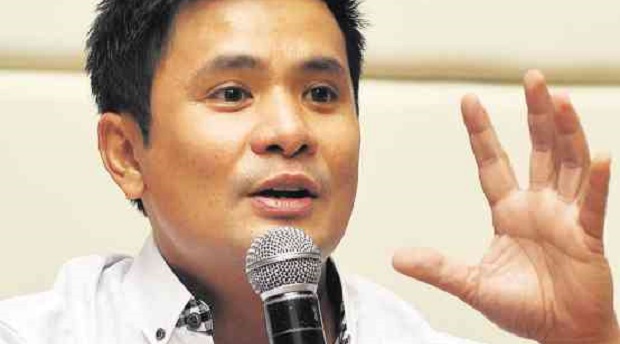Musicians back OPM Development bill
MANILA, Philippines — Leading artists flocked to the House of Representatives on Monday to back a bill strengthening the OPM (Original Pinoy Music) industry amid intense competition with foreign artists.
Musicians, among them Ogie Alcasid, Jim Paredes, Dingdong Avanzado, and Noel Cabangon, were present in the House basic education and culture committee hearing on House Bill 4218 titled “An Act providing for the promotion, protection and development of the Philippine music industry” or simply “OPM Development Act.”
The bill, authored by Ifugao Rep. Teddy Baguilat, seeks to strengthen Executive Order 255, a 1987 law requiring radio stations to broadcast at least four OPM songs every hour. The executive order also penalizes errant radio stations with a P100 fine.
Alcasid told lawmakers this is clearly not followed by radio stations.
“There is a preferential treatment for foreign music. You can only just turn on the radio to recognize that,” Alcasid said.
“The reason we have this bill is because there’s truth to the unequal playing of music on radio stations,” Cabangon added.
Article continues after this advertisementParedes said at least 12 songs on average are played per hour on the radio, and four songs as required in the executive order barely meets half of the average.
Article continues after this advertisementParedes added that no radio station has ever been fined for violating the executive order.
“I think radio is a beacon of culture and taste. To promote culture, we should really listen to local songs in the radio. It promotes nationhood,” Paredes said.
Under the proposed measure, radio stations playing at least four OPM songs per clock hour are entitled to a tax credit.
The bill also said foreign performers will be charged with an equity fee equivalent to the amount charged to a Filipino artist or performer in the country of origin of said foreign artist.
The income from the equity fee will be pooled into a fund for the benefit of local performers who are members of accredited performers’ guilds.
Avanzado said the payment of equity fees intends to regulate the influx of foreign artists in the country.
While he said he respects “cultural exchange in the globalized world,” “Fillipino artists need to be given preferential rights over any foreign act.”
Mark Alciso, General Manager for Filipino Society of Composers, Authors and Publishers, said in 2014, at least 75 percent of local revenues generated were paid for foreign performers at P35 million. Meanwhile, only 25 percent or P12 million were paid for local artists.
“This shows that the play of foreign works is really predominant,” Alciso said.
Paredes said the payment of equities seeks to compensate local performers who were displaced of their audience due to the performance of foreign artists.
But each foreign performer only pays P5,000 per act as stated in a memorandum of agreement with the Bureau of Immigration signed in 1989, Paredes said.
“So if Mariah Carrey comes here and earns $500,000, we can only collect P5,000,” Paredes said.
Pangasinan Rep. Kimi Cojuangco, who chairs the committee, said the amount is incredibly low as equity fees for internationally famous musicians. “I can’t believe it’s so low,” she said.
